Text
Guess who wants to learn Japanese now?
Hahahahahahahhahahahahahahhahahahahah
Oh boy...
But seriously though, if anybody has any tips or resources on how to start, shoot me a message or let me know in the comments.
#langblr#japanese#what am i doing with my life#i all the sudden i want to learn Japanese#this was uncalled for
9 notes
·
View notes
Link
Struggling with Italian articles? 🥊 Have a look at this useful grammar tip to understand how they work! ✅ Follow this link
⬇️⬇️⬇️
https://www.happylanguages.co.uk/lesson/italian-articles/
32 notes
·
View notes
Text
Day 5 Basic verbs (German)
Day 5 guys!!!

To eat - Essen
To drink - Trinken
To walk - Gehen
To write - Schreiben
To be - Sein
To speak - Sprechen
To watch - Schauen
To sit - Sitzen
To stand - Stehen
To run - Laufen
To see - Sehen
15 notes
·
View notes
Text
Day 4 Basic People Nouns (Italian and German)
Sorry this is a day late

The boy - Il ragazzo - Der Junge
The girl - La ragazza - Das Madchen
The child - Il bambino - Das Kind
Children - Bambini - Kinder
The teenager - L’adolescente - Der Jugendliche
The man - L’uomo - Der Mann
The woman - La donna - Die Frau
Men - Uomini - Manner
Women - Donne - Frauen
The adult - l’adulto - Der Erwachsene
The elderly - Gli anziani - Die Alten
The family - La famiglia - Die Familie
People - Persone - Leute
8 notes
·
View notes
Text
Day 3 Personal Pronouns (Greek and German)

Nominative German
I - ich
You - du
He - er
She - sie
It - es
We - wir
Y'all (I know it's you - plural, but I always think of it as y'all) - ihr
They - sie
You - Sie
Nominative Greek
I - Εγώ
You -Εσείς
He - Αυτός
She - Αυτή
It - Αυτό (το)
We - Εμείς
Y'all - Εσείς
They - Αυτοί
8 notes
·
View notes
Text
Day 2 Introductory Phrases (German)
Happy Mother's Day y'all

Hello/Hi - Hallo
My name is... - Ich heiße...
I come from... - Ich komme aus...
How are you? - Wie gehts?
Fine, thank you - Gut, danke
And you? - Und du?
Good morning - Guten Morgen
Good afternoon - Guten Tag
Good evening - Guten Abend
Welcome - Willkommen
May I help you? - Kann ich Ihnen helfen
Do you speak English? - Sprechen Sie Englisch?
Yes, a little - Ja etwas
Mr. - Herr.
Mrs. - Frau.
Miss. - Fräulein.
Goodbye - Auf Wiedersehen
See you later - Bis später
See you tomorrow - Bis morgen
7 notes
·
View notes
Text
2 Month Language Writing Prompts
Hi guys! I don't think I posted anything on my blog that I made, so here I am.

I know I've been on and off this site a lot, but recently I hit 100 followers (and thank you to all who followed me, it means so much to me. And I hope you all know that you are loved and appreciated!) so I'm decided to do something new for a change. I'm going to do this 2 month Language Writing Prompts that I actually reblogged sometime before. This was created by @amillionlanguages, not me. (I would check out that blog because they have a lot of cool language content). So I thought 'hey I'm bored, and I'm in quarantine for God knows how long so why not do this'. I'm going to try this with my targeted languages (German, Italian, and Greek). This was going to be a private project were I just write it down, but I thought I'll post them on here to share with you guys too and maybe help you guys to study your languages too (It's what my blog is for after all). The languages I post may be mixed up, not all consistent with the days, though if I'm really bored somedays I'll post all three on the same day. So, on Day 1, I'm going to start with Italian.
Day 1 Polite Phrases (Italian)
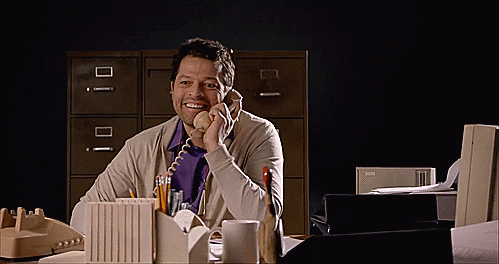
Please - Per favore
Thank you - Grazie
Yes/No - Sì/No
You're welcome - Prego
I'm sorry - Mi dispiace
May I - Posso io
Can I - Posso
No problem - Nessun problema
Excuse me - Scusa
Pardon me - Scusami
I beg your pardon - Chiedo scusa
Bless you (for a sneeze) - Salute
Good luck - Buona Fortuna
*I know there are several ways to say I'm sorry, but 'Mi Dispiace' is the casual way of saying it. If I am wrong for any of these just message me so I can fix them*
So again I hope you enjoy my first post here (at least I think it is). I hope to keep this up everyday, and use my three targeted languages for this project. If you have any questions just feel free to ask anytime! I'll be back tomorrow with Day 2!
2 notes
·
View notes
Text
How to learn a language when you don’t know where to start:
General Plan:
Weeks 1 and 2:
Purpose:
Learn the fundamentals sentence construction
Learn how to spell and count
Start building a phrase stockpile with basic greetings
The Alphabet
Numbers 1 - 100
Subject Pronouns
Common Greetings
Conjugate the Two Most Important Verbs: to be and to have
Basic Definite and Indefinite Articles
Weeks 3 and 4:
Purpose:
Learn essential vocabulary for the day-to-day
Start conjugating regular verbs
Days of the Week and Months of the Year
How to tell the time
How to talk about the weather
Family Vocabulary
Present Tense Conjugations Verbs
Weeks 5 and 6:
Purpose:
Warm up with the last of the day-to-day vocabulary
Add more complex types of sentences to your grammar
Colours
House vocabulary
How to ask questions
Present Tense Conjugations Verbs
Forming negatives
Weeks 7 and 8:
Purpose:
Learn how to navigate basic situations in a region of your target language country
Finish memorising regular conjugation rules
Food Vocabulary and Ordering at Restaurants
Money and Shopping Phrases
Present Tense Conjugations Verbs
Weeks 9 and 10:
Purpose:
Start constructing descriptive and more complex sentences
Adjectives
Reflective verbs
Places vocabulary
Weeks 11 and 12:
Purpose:
Add more complex descriptions to your sentences with adverbs
Wrap up vocabulary essentials
Adverbs
Parts of the body and medical vocabulary
Tips for Learning a Foreign Language:
Learning Vocabulary:
What vocabulary should I be learning?
There are hundreds of thousands of words in every language, and the large majority of them won’t be immediately relevant to you when you’re starting out.Typically, the most frequent 3000 words make up 90% of the language that a native speaker uses on any given day. Instead try to learn the most useful words in a language, and then expand outwards from there according to your needs and interests.
Choose the words you want/need to learn.
Relate them to what you already know.
Review them until they’ve reached your long-term memory.
Record them so learning is never lost.
Use them in meaningful human conversation and communication.
How should I record the vocabulary?
Learners need to see and/or hear a new word of phrase 6 to 17 times before they really know a piece of vocabulary.
Keep a careful record of new vocabulary.
Record the vocabulary in a way that is helpful to you and will ensure that you will practice the vocabulary, e.g. flashcards.
Vocabulary should be organised so that words are easier to find, e.g. alphabetically or according to topic.
Ideally when noting vocabulary you should write down not only the meaning, but the grammatical class, and example in a sentence, and where needed information about structure.
How should I practice using the vocabulary?
Look, Say, Cover, Write and Check - Use this method for learning and remembering vocabulary. This method is really good for learning spellings.
Make flashcards. Write the vocabulary on the front with the definition and examples on the back.
Draw mind maps or make visual representations of the new vocabulary groups.
Stick labels or post it notes on corresponding objects, e.g when learning kitchen vocabulary you could label items in your house.
How often should I be practising vocabulary?
A valuable technique is ‘the principle of expanding rehearsal’. This means reviewing vocabulary shortly after first learning them then at increasingly longer intervals.
Ideally, words should be reviewed:
5-10 minutes later
24 hours later
One week later
1-2 months later
6 months later
Knowing a vocabulary item well enough to use it productively means knowing:
Its written and spoken forms (spelling and pronunciation).
Its grammatical category and other grammatical information
Related words and word families, e.g. adjective, adverb, verb, noun.
Common collocations (Words that often come before or after it).
Receptive Skills: Listening and Reading
Reading is probably one of the most effective ways of building vocabulary knowledge.
Listening is also important because it occupies a big chunk of the time we spend communicating.
Tips for reading in a foreign language:
Start basic and small. Children’s books are great practice for beginners. Don’t try to dive into a novel or newspaper too early, since it can be discouraging and time consuming if you have to look up every other word.
Read things you’ve already read in your native language. The fact that you at least know the gist of the story will help you to pick up context clues, learn new vocabulary and grammatical constructions.
Read books with their accompanying audio books. Reading a book while listening to the accompanying audio will improve your “ear training”. It will also help you to learn the pronunciation of words.
Tips for listening in a foreign language:
Watch films in your target language.
Read a book while also listening along to the audio book version.
Listen to the radio in your target language.
Watch videos online in your target language.
Activities to do to show that you’ve understood what you’ve been listening to:
Try drawing a picture of what was said.
Ask yourself some questions about it and try to answer them.
Provide a summary of what was said.
Suggest what might come next in the “story.”
Translate what was said into another language.
“Talk back” to the speaker to engage in imaginary conversation.
Productive Skills: Speaking and Writing
Tips for speaking in a foreign language:
If you can, try to speak the language every day either out loud to yourself or chat to another native speaker whether it is a colleague, a friend, a tutor or a language exchange partner.
Write a list of topics and think about what you could say about each one. First you could write out your thoughts and then read them out loud. Look up the words you don’t know. You could also come up with questions at the end to ask someone else.
A really good way to improve your own speaking is to listen to how native speakers talk and imitate their accent, their rhythm of speech and tone of voice. Watch how their lips move and pay attention to the stressed sounds. You could watch interviews on YouTube or online news websites and pause every so often to copy what you have just heard. You could even sing along to songs sung in the target language.
Walk around the house and describe what you say. Say what you like or dislike about the room or the furniture or the decor. Talk about what you want to change.This gets you to practise every day vocabulary.
Tips for writing in a foreign language:
Practice writing in your target language. Keep it simple to start with. Beginner vocabulary and grammar concepts are generally very descriptive and concrete.
Practice writing by hand. Here are some things you can write out by hand:
Diary entries
Shopping lists
Reminders
What could I write about?
Write about your day, an interesting event, how you’re feeling, or what you’re thinking.
Make up a conversation between two people.
Write a letter to a friend, yourself, or a celebrity. You don’t need to send it; just writing it will be helpful.
Translate a text you’ve written in your native language into your foreign language.
Write a review or a book you’ve recently read or a film you’ve recently watched.
Write Facebook statuses, Tweets or Tumblr posts (whether you post them or not will be up to you).
Write a short story or poem.
Writing is one of the hardest things to do well as a non-native speaker of a language, because there’s no room to hide.
There are lots of ways to improve your writing ability, but they can be essentially boiled down to three key components:
Read a lot
Write a lot
Get your writing corrected
28K notes
·
View notes
Text
2+ Months of Language Learning Prompts!
Sometimes it can be tricky to know what to learn if you are teaching yourself a language. Here are some ideas for what you can focus on learning each day for the first two months of learning a new language! I formatted it so there is the general topic for the day and then in parentheses are some ideas to get you started but you can definitely learn a lot more than what I’ve written down! These are just to help generate some ideas!
This definitely would move pretty quickly if you covered all this material in 2 months so you could definitely spend more time on each topic if you need! This would require quite a bit of time each day in order to learn it all. This could totally work for a 4 or 6-month challenge where you spend 2 or 3 days on each of the topics I listed if you don’t have enough time to cover each topic in just one day!
Polite phrases (thank you, please, yes/no, you’re welcome, I’m sorry)
Introductory phrases (hi, my name is, I’m from, I speak, how are you?)
Pronouns (I, you, he, she, they, we)
Basic people vocab (girl, boy, man, woman, person, child)
Basic verbs in present tense (to eat, to drink, to walk, to read, to write, to say)
Sentence structure (how to form some basic sentences)
Negative sentences (I do not __)
Question words (who, what, where, when, why, how, how to form questions)
Numbers (0-20, 30, 40, 50, 100, 1,000, 1,000,000)
Time (hour, minute, half hour, reading the time)
Meals (breakfast, lunch, dinner, snack, dessert, appetizer)
Basic foods (apple, banana, rice, bread, pasta, carrot, soup, water)
More foods (beef, pork, fruit, vegetable, juice, coffee, tea, chocolate, cake)
Kitchen (stove, oven, kitchen, fridge, table, chair, bake, boil)
Eating supplies (knife, spoon, fork, plate, bowl, cup, glass)
More verbs (to make, to have, to see, to like, to go, to be able to, to want, to need)
Family (father, mother, son, daughter, aunt, uncle, cousin, grandmother, grandfather, parents, grandparents)
Transportation (car, train, plane, bus, bicycle, airport, train station)
City locations (apartment, building, restaurant, movie theater, market, hotel, bank)
Directions (north, south, east, west, right, left)
Adjectives (good, bad, smart, delicious, nice, fun)
More verbs (to give, to send, to wake up, to cry, to love, to hate, to laugh)
Colors (red, yellow, blue, green, purple, black, white, brown)
Emotions (happy, sad, calm, angry)
Physical descriptions (tall, short, blonde, brunette, redhead, eye color)
Body parts (arm, leg, hand, finger, foot, toe, face, eye, mouth, nose, ears)
Descriptors (rich, poor, beautiful, ugly, expensive, inexpensive)
Basic clothing (shirt, pants, dress, skirt, jacket, sweater, skirt, shorts)
Accessories (belt, hat, wallet, gloves, sunglasses, purse, watch)
More verbs (to keep, to smile, to run, to drive, to wear, to remember)
Animals (cat, dog, horse, cow, bear, pig, chicken, duck, fish)
More animals (turtle, sheep, fox, mouse, lion, deer)
Months (January, February, March, April, May, June, July, August, September, October, November, December)
Seasons (fall, winter, spring, summer)
Weather (sunny, cloudy, hot, cold, snowing, raining)
States of being (I’m hungry, I’m tired, I’m thirsty)
House (bedroom, living room, bathroom, stairs)
Furniture (bed, lamp, couch, door, window)
Electronics (phone, TV, computer, camera, radio, headphones)
Nature (tree, flower, plant, animal, grass, animal, outside, sky, sun, moon, clouds)
More verbs (to teach, to learn, to understand, to know, to listen, to hear)
School (classroom, elementary school, high school, college, student, class, grade, homework, test)
School subjects (math, science, English, art, music, chemistry, biology, physics)
School supplies (book, pencil, pen, paper, notebook, folder, backpack, calculator)
Classroom features (student desk, teacher desk, whiteboard, chalk, clock, bell)
Jobs (teacher, scientist, doctor, artist, dancer, musician)
More jobs (surgeon, manager, engineer, architect, lawyer, dentist, writer)
More verbs (to buy, to sell, to work, to ask, to answer, to dance, to leave, to come)
Comparisons (less than, more than, same, __er than)
Languages (French, German, Chinese, Russian, Spanish, English, Japanese)
Countries (France, Germany, China, Russia, Spain, Mexico, United States, Japan)
Religion (church, temple, mosque, to pray, Judaism, Christianity, Islam)
Past tense (I was, he ran, she wrote)
Hobbies (shopping, sports, soccer, chess, fishing, gardening, photography)
More verbs (to describe, to sleep, to find, to wish, to enter, to feel, to think)
Art (paint, draw, painting, gallery, frame, brush)
Morning routine (to wake up, to brush teeth, toothbrush, toothpaste, comb, soap)
Future tense (I will run, he will write)
TV + internet (online, internet, to watch TV, TV show, movie, documentary, cartoon)
More verbs (to look for, to stay, to touch, to meet, to show, to rent, to wash, to play)
7K notes
·
View notes
Text
ancient greek adjectives
αἰσχρός (-ά -όν) base, shameful
ὁ αἰσχρός ἒργον
ἀναγκαῖος (-α -ον) necessary
ἡ αἰδώς ἀναγκαῖα
ἀμήχανος (-ον) impossible
ὁ υἱός ἀμήχανος
ἀναίτιος (-ον) innocent
ὁ παῖς ἀναίτιον
ἄκυρος (-ον) invalid
ὁ ᾰ̓γών ἄκυρος
five words a day
34 notes
·
View notes
Text
Learning Languages and How to Make it Fun
(gifs not mine, credit to the artist)
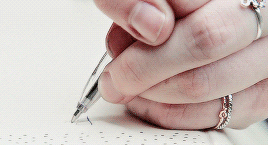

How does a child learns? Immersion
So you gotta dive deep
Find songs that you like. You don't have to understand, you just have to enjoy the song.
Listen them at least once a day. The idea is for you to get familiar with the sounds.
Once you have already heard them too many times (without getting tired of them) look for the lyrics. In their native language, not a translation.
If you can read in that language, then try reading them. Print them if you have to or write them down (this is better) and as you listen to the song try to sing.
If there's a word/sentence you like because it sounds pretty, mark it.
If there's a word you don't know how to/can't pronounce, mark it.
For example, I have a journal in which I write Japanesse Kanji that I find beautiful (whether is because of the meaning or the symbol itself is pretty)
Once you are familiar with the song look for a translation.
Check those words you have marked with the translation.
While looking for definitions it's better if you find images (so can have an idea of what that word is) instead of a definition in your language (unless is a long/complicated concept).
Movies, you must watch movies in that language. Better if they are from that country. (It can also be a doubled movie, perhaps you could look for one of your favorites)
Watch them with subtitles (in your language) once or twice. Then watch them again but this time without subtitles or with subtitles of said language. (You already know the plot, so you can still understand what's going on)
If you like to read, look for children literature. It's easy and fun.
Keep reading even if you don't understand a single sh*t. It doesn't matter.
Mark again those words you like, don't know the meaning or can't pronounce.
Write at least one sentence every day. It doesn't have to be right, it doesn't have to be long or poetic, you just gotta write.
If you still don't know much about grammar (enough to formulate a sentence on your own) then write a quote from one of those songs, movies or books you read. Again it doesn't matter if you don't understand what are you writing.
If you already know another language, try to learn the new language with that one. For example, I learn german from english instead of my native language spanish.
Videogames. In my experience this is amazing. You have no idea idea how much I learned english just from games.
You have fun playing, engaged with a story, while constantly hearing the language. You don't even have to pay attention at what they are saying, eventually you'll figure it out. It's very intuitive.
And because games, usually, requires that you spend many hours playing you will have a lot of practice without actually studying.
Some games, if you look on the settings menu, even have other languages instead of english. For example I played Assassin's Creed Brotherhood in italian and french and AsC III in russian and japanese (the voice actors are fantastic).
Seriously, videogames are freaking amazing for learning.
The idea of this, is that you can imitate the learning process a child does, while also having fun and enjoying it. Kids learn by making mistakes, by playing with words and by being constantly surrounded with the language. At first, kids have no idea what they are doing, they just repeat what they see and hear. So it's okay if you don't know what are you doing, take that pressure off. This is not school/college, this is just you trying to learn a culture. So be kind and patient with yourself.
LEARNING SHOULD BE FUN, be creative with your methods and try everything (so you can find what you are comfortable with). It is scientifically proved that if you like what you are studying and having fun it will be 10x easier to assimilate and remember the knowledge you are acquiring.
14K notes
·
View notes
Text
This is extremely helpful!!!!
Ultimate Studyblr FAQ
TAGS:
studyblr (=smartblr) - study blog
studyspo (=smartspo) - study inspiration (e.g., quotes, pictures of studying or stationery…)
appblr - university (college) applications blog
archblr - architecture studyblr
artblr - art studyblr
astroblr - astronomy studyblr
bioblr - biology studyblr
businessblr - business studyblr
chemblr - chemistry studyblr
engblr - engineering studyblr
historyblr - history studyblr
langblr - languages studyblr
lawblr - law studyblr
litblr - literature studyblr
mathblr - mathematics studyblr
medblr - medicine studyblr
musicblr - music studyblr
philoblr - philosophy studyblr
physicsblr - physics studyblr
psychblr - psychology studyblr
stemblr - science, technology, engineering, maths studyblr
APPLICATIONS/ EXTENTIONS/ WEBSITES:
(If there’s no price written next to something, that thing is for free)
- Forest android | iOS ($0.99) | Windows Phone (€0.99) | Chrome | Firefox
(FocusNow - a similar free version for iOS)

- Momentum Chrome

- Fliqlo Mac/Windows | iOS ($0.99)
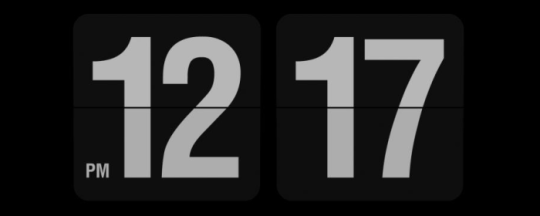
- Habitica website | android

- Duolingo website | android | iOS
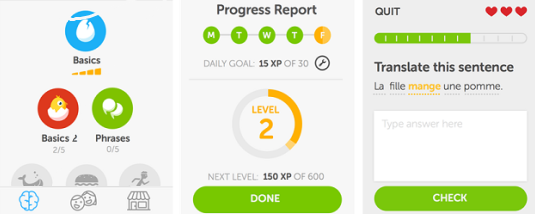
- Khan Academy website | youtube | android | iOS
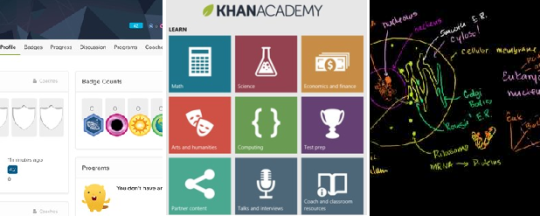
- Cold Turkey (program that blocks websites) website

- Todoist website | android | iOS | Chrome

- Quizlet website | android | iOS
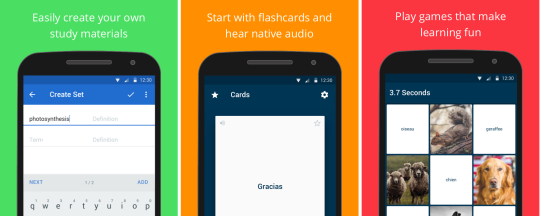
- My Study Life website | android | iOS | Windows Phone | Chrome
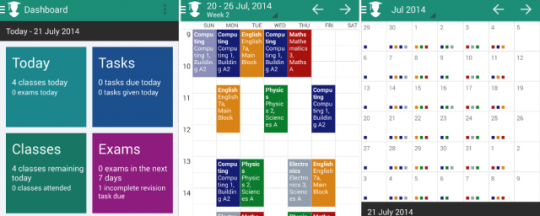
- Lanes website | chrome
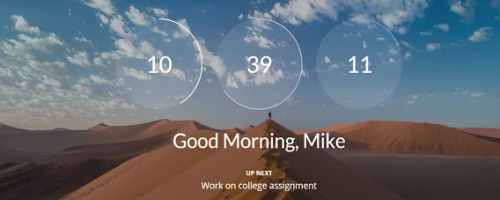
STATIONERY:
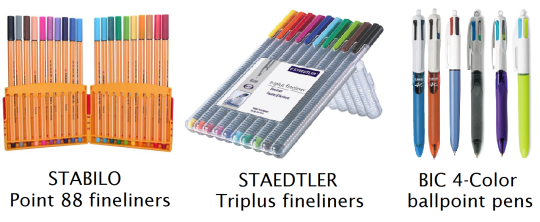
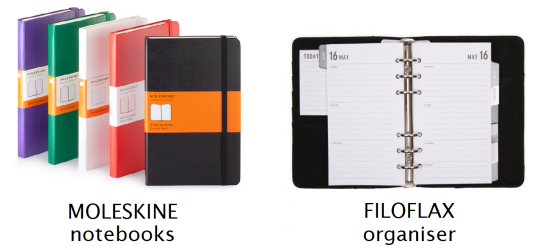
TESTS/ PROGRAMMES/ CERTIFICATES, ETC:
GSCE - General Certificate of Secondary Education is a two-year programme in a specific subject taken by school students in UK. Students start GCSEs at age 14 in year 10 and then they take the public examinations at age 16 in year 11.
A level - a qualification in a specific subject typically taken by school students aged 16–18 in UK (after GCSEs). A Levels are worked towards over two years and split into two parts, with one part studied in each year:
A1 Level or AS Level - the first part of the A level.
A2 Level - the second part of the A level.
Advanced Placement (AP) is a program in the USA and Canada, which offers college-level curricula and examinations to high school students. American colleges and universities often grant placement and course credit to students who obtain high scores on the examinations.
International Baccalaureate (IB) can refer to the international educational foundation, any of the 4 programmes it offers, or the diploma or certificates awarded at the end of the programme.
IELTS - International English Language Testing System is an international standardised test of English language proficiency for non-native English language speakers.
TOEFL - Test Of English as a Foreign Language is a standardized test to measure the English language ability of non-native speakers wishing to enroll in American universities. Though, it is accepted by many English-speaking academic and professional institutions.
ACT - American College Testing is a standardized test for high school achievement and college admissions in USA.
SAT - Scholastic Assessment Test is a standardized test widely used for college admissions in USA.
EDUCATION STAGES/ DEGREES:
Major - is the academic discipline to which an undergraduate student formally commits in USA and Canada. A student who successfully completes the courses prescribed in an academic major qualifies for an undergraduate (Bachelor’s) degree.
Double major - a student who declares two academic majors is said to have a double major.
Undergrad student - a student taking up undergraduate education.
Undergraduate education - is a level of education between secondary education and a master’s degree. When a student completes an undergraduate education they get a Bachelor’s degree.
Grad student - a student taking up graduate or postgraduate education.
Graduate education - is a level of education taken up after getting a Bachelor’s degree. When a student complete a graduate education they either get a Master’s or Doctorate degrees.
It goes something like this:

Beware, things vary from country to country and from subject to subject.
(Click here for the updated version of this post)
20K notes
·
View notes
Text
please like if you’re a langblr
just any kind, any and all languages. I’m actively learning Korean and French but am open to all languages. especially mandarin and russian. but seriously please please please if you’re an active korean langblr, i could use you.
109 notes
·
View notes
Text
Greek Alphabet
Α α = alpha
Β β = beta
Δ δ = delta
Ε ε = epsilon
Φ φ = phi
Γ γ = gamma
Η η = eta
Ι ι = iota
Ξ ξ = ksi
Κ κ = kappa
Λ λ = lambda
Μ μ = mu
Ν ν = nu
Ο ο = omicron
Π π = pi
Ρ ρ = rho
Σ σ = sigma
Τ τ = tau
Θ θ = theta
Ω ω = omega
Χ χ = chi
Υ υ = upsilon
Ζ ζ = zeta
Ψ ψ = psi
12K notes
·
View notes
Text
this has been a gift from God himself
Roses are red
Violets are blue

401K notes
·
View notes
Text
You’re studying for your future not for the grades!
14K notes
·
View notes